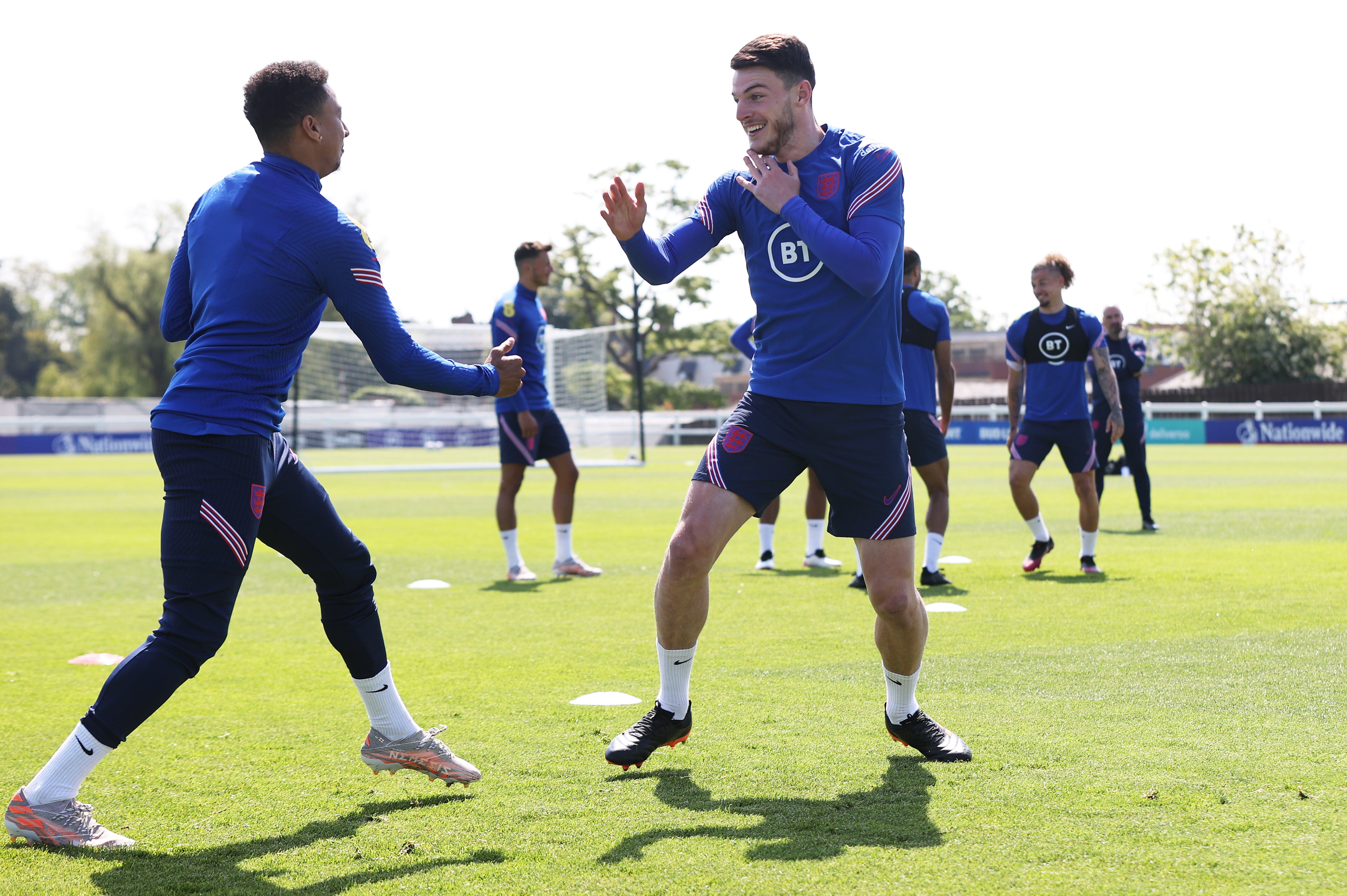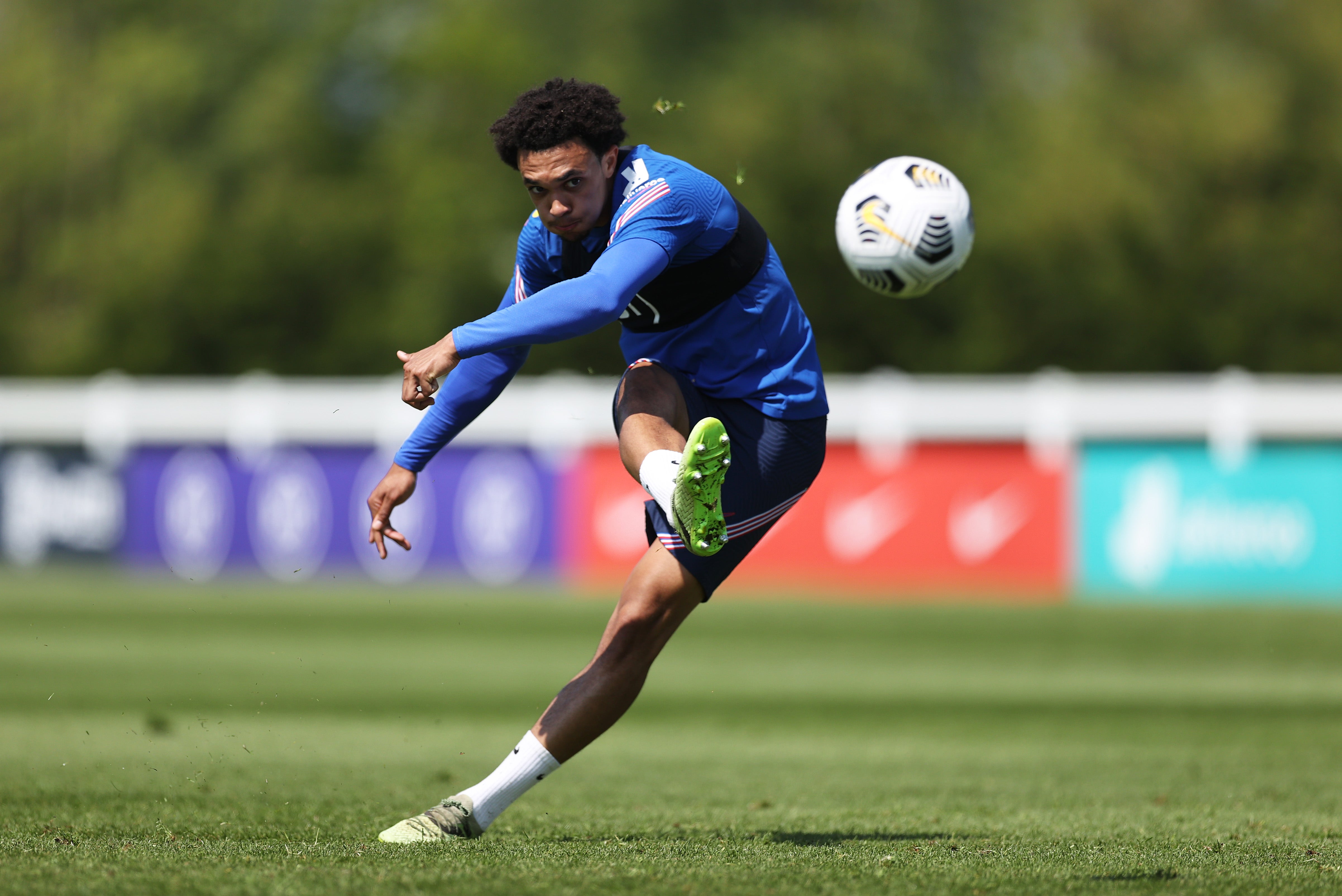England Euro 2020 squad: Performances are much more important than the perception of Gareth Southgate’s picks
Intense debate preceded and followed Southgate’s squad reveal, but the competition will be won or lost because of what happens on the pitch

Your support helps us to tell the story
From reproductive rights to climate change to Big Tech, The Independent is on the ground when the story is developing. Whether it's investigating the financials of Elon Musk's pro-Trump PAC or producing our latest documentary, 'The A Word', which shines a light on the American women fighting for reproductive rights, we know how important it is to parse out the facts from the messaging.
At such a critical moment in US history, we need reporters on the ground. Your donation allows us to keep sending journalists to speak to both sides of the story.
The Independent is trusted by Americans across the entire political spectrum. And unlike many other quality news outlets, we choose not to lock Americans out of our reporting and analysis with paywalls. We believe quality journalism should be available to everyone, paid for by those who can afford it.
Your support makes all the difference.After making his decisions, Gareth Southgate now has to offer the consequences. The England manager has admitted that anything less than reaching the semi-finals at Euro 2020 would be a disappointment.
“It probably will,” Southgate said. “I think we’re realistic about that. We have to live with that expectation. We know the excitement around the team and it’s great. We’re now relevant.”
Or, rather, it’s now real. That is perhaps the greatest significance of the final squad announcement. It is a first concrete step after months – or, in this case, over a year – of build-up, discussion and possibilities. The tournament is in sight, because the final squad can be seen.
Its actual influence on whether England make the semi-finals is a lot more nebulous. The reality is that most international tournament winners don’t fall or rise on the final calls of their squad. There’s much more to it, like the core of the team.
That is where there are some concerns for Southgate, which do explain some of his decisions. Centre-half is probably the weakest area of the team. That can be seen by the clubs beside the names on the squad list. Whereas the rest is filled with Champions League quality, Southgate is there dependent on Tyrone Mings from 11th-placed Aston Villa, Conor Coady from 13th-placed Wolves and – if he’s picked there – Declan Rice from sixth-placed West Ham United. That is no disrespect to those clubs, or to discount the fact Rice is a player coveted by the biggest, but their finishes do represent a drop from the quality available in the other areas.

Harry Maguire is there from second-placed Manchester United, but he is one of a few core players currently facing questions over fitness or form. A year ago, England’s spine - and “leadership group” – was built on the centre-half, Jordan Henderson, Raheem Sterling, Marcus Rashford and Harry Kane.
Maguire and Henderson are now highly unlikely to play the opening game, with Southgate also making comments like how if England “can get them to the point where they can contribute to the team, that would be fantastic for us because we know what outstanding players they are and outstanding characters”.
Sterling has been off form and out of the City team, until – surprisingly, and somewhat confusingly – the Champions League final. Rashford has looked jaded, and Southgate also spoke to the player to make sure he was okay, after the United forward revealed he had been racially abused again on social media after the Europa League defeat.
It is almost only Kane of the core group who goes in fully fit and on form – albeit after a dissatisfying club season that has left his future uncertain.
Given the doubts about his most experienced players, it is just as well Southgate has such strength in depth. Most of those would have been in the squad regardless of whether it was 23 or 26. The expansion has just made personnel decisions easier, even if Southgate did express some concern over the effect on the “dynamic” of the squad. Some of the players who had been on the fringes have become almost indispensable. Among them are Phil Foden and Mason Mount. Southgate name-checked them as future leaders.
Even the inclusion of four right-backs looks that bit less contentious when you consider the lack of controversy over who has actually been left out. Michael Keane, James Ward-Prowse, Jesse Lingard, Patrick Bamford and one or two others might have felt they had a chance, but that was all it amounted to. There are no huge calls, certainly no Paul Gascoigne 1998, Jermaine Defoe 2006 or Rio Ferdinand 2012.
A fit Mason Greenwood might have created a bigger decision, but the fitness issues that forced his withdrawal made it much easier for Southgate.
There has been a view that just picking all four right-backs is “weak”, that Southgate didn’t make the hard call. That has only grown after the admission that Alexander-Arnold hasn’t actually been picked in midfield, and is “unlikely” to play there.

The truth is that these are perceptions that will be entirely conditioned by performance. If England do get to at least the semi-finals, the fact they picked four right-backs will be irrelevant. If they go out in the last 16 or before, it will be pored over to explain the lack of strength.
For now, it just gives Southgate more options, especially since Kyle Walker and Reece James are really centre-back options, too.
“We know that we’ve got the ability to play a four or a five and we’ll keep assessing that,” Southgate explained. “We want both options available. We felt that was something in Russia we needed, to groove one system, because perhaps in some of the past performances that the team had had, the lack of clarity of their roles and patterns of play had led to uncertainty. I think this team has evolved now. They are more confident, they are tactically more adaptable. They are used to working with us for a longer period of time. A lot of the patterns in our attacking play, in particular, are the same whether we play with a three or a four. We still have the same combinations, the same types of runs. It’s just different personnel who end up in those positions. So that actually isn’t as big a deal for us as people might feel.”
The same applies to the squad selection. It isn’t as big a deal as it might have been. Much will depend on the tournament itself.
Join our commenting forum
Join thought-provoking conversations, follow other Independent readers and see their replies
Comments